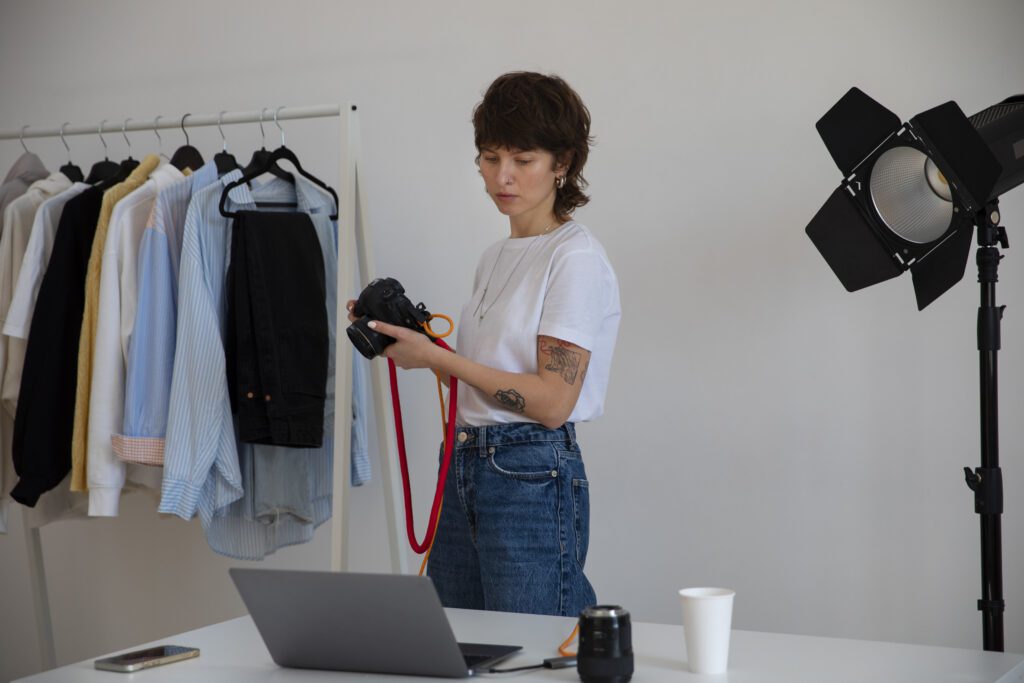The Rise of Social Media in Fashion Marketing
Social media has revolutionized how fashion brands connect with their audience. With platforms like Instagram, TikTok, and Pinterest, brands can reach millions of potential customers with a single post. Unlike traditional marketing channels, social media allows for real-time interaction, enabling brands to respond to trends and consumer feedback instantly. This immediacy has made social media a vital component of any fashion marketing strategy.
Instagram, in particular, has become the go-to platform for fashion brands. Its visual nature aligns perfectly with the fashion industry’s need to showcase designs and aesthetics. Instagram Stories and Reels have added layers of engagement, allowing brands to share behind-the-scenes content, product launches, and collaborations in a more personal and interactive manner. The platform’s shopping features have also streamlined the consumer journey, allowing users to purchase items directly from posts, effectively turning social media into a sales channel.
TikTok, with its short-form video content, has also emerged as a powerful platform for fashion marketing. The platform’s algorithm-driven feed, which favors trending content, has given rise to viral fashion challenges and influencer-driven campaigns. Brands are increasingly leveraging TikTok’s creative potential to reach younger, trend-conscious audiences.
Influencer Marketing:
Influencer marketing has become a cornerstone of fashion marketing on social media. Influencers, with their loyal followings and authentic content, have the power to sway consumer behavior and drive brand awareness. From micro-influencers with niche audiences to mega-influencers with millions of followers, brands are collaborating with influencers to create authentic and relatable content that resonates with their target demographics. One of the key advantages of influencer marketing is its ability to humanize a brand. Influencers often share personal stories, styling tips, and product reviews, making the brand more accessible and relatable to their followers. This type of content feels more organic and less like traditional advertising, which can lead to higher engagement and trust among consumers.
Moreover, influencers play a crucial role in trendsetting within the fashion industry. A single post from a popular influencer can set off a new trend, leading to a surge in demand for specific products. Brands are increasingly aware of this power and are strategically partnering with influencers to amplify their reach and stay ahead of trends.

The Evolution of Fashion Marketing:
Prior to the emergence of social media, luxury fashion shows, celebrity endorsements, and expensive print ads dominated the fashion marketing industry. The focus of marketing methods was exclusivity; only a small group of people were able to access the newest trends, and the remainder were only exposed to them. However, this conventional framework was upset by the digital revolution, particularly in the 2010s.
Ordinary people become trend-setters because to social media sites like Instagram and Pinterest. Visual-first platforms gave rise to a new kind of fashion influencer – individuals who could style, shoot, and post looks straight from their homes, resonating with millions globally. Brands began to see that relatable content, rather than glitzy advertisements, now had more sway over consumer decisions.

The New Face of Fashion Promotion:
One of the most significant advantages of social media in fashion marketing is the wealth of data it provides. Social media platforms offer detailed insights into consumer behavior, preferences, and demographics. Brands can analyze this data to tailor their marketing strategies, create personalized content, and target specific audiences with precision.
Trust is what separates influencer marketing. Influencers are seen by followers as approachable individuals who offer candid evaluations and firsthand accounts. Compared to famous patrons this genuineness increases the desire to buy. Influencer partnerships help brands gain credibility in addition to visibility. From particular color schemes to seasonal essentials, an influencer’s post can start a trend and naturally reach millions of people.
Data Driven Fashion Marketing:
Social media marketing is not only about creative it’s also deeply analytical. Every viral campaign has a mountain of data-driven strategy at its core. In order to comprehend consumer behavior, tastes, and new trends, fashion firms now rely on sophisticated analytics. In order to determine what appeals to audiences the most, algorithms monitor engagement, clicks, saves, and shares. Brands may use this information to optimize content, from posting schedules to caption tone, to guarantee greatest exposure and interaction. Through the analysis of global search patterns and online activity, artificial intelligence systems can potentially forecast future trends.
User Generated Content and Community Building:
Customers are collaborators as well as buyers in the current digital fashion environment. User-generated content (UGC) has a significant impact on how people view brands. Customers’ posts of themselves dressed in a brand’s apparel act as free advertising and establish the brand’s validity. Fashion brands frequently promote this by tagging users, making branded hashtags, and reposting user-generated content.
UGC promotes inclusivity and a sense of belonging. Companies like Savage X Fenty, Fabletics, and Aerie have developed vibrant communities by encouraging diversity and body positivity via user engagement. Instead than coming across as unduly corporate, this participative style helps firms seem genuine and customer-focused.
The Role of Short Form Video in Fashion:
The way that people share and consume fashion has been completely transformed by short-form video content. Video is becoming the most popular narrative format thanks to platforms like YouTube Shorts, Instagram Reels, and TikTok. These little videos immediately grab viewers’ attention and tell stylish stories. Videos, ranging from brief styling lessons to behind-the-scenes film at fashion shows, offer viewers an insight into the brand’s inventiveness. A generation with shorter attention spans will find this information intriguing, lively, and intimate. Fashion companies such as Coach, Zara, and Louis Vuitton have made significant investments in short-form content that blends trend relevancy with art direction.

Strategies for Effective Fashion Marketing:
- Consistency in Brand Aesthetic
- Interactive Campaigns
- Influencer Collaborations
- Trend Responsiveness
- Data-Driven Optimization
- Sustainability Messaging
Summary:
Social media and fashion marketing are now inextricably linked. Previously dominated by exclusivity, this business is now driven by quick connection, involvement, and inclusivity. Trends are created, disseminated, and reimagined in real time on the digital runway. Every smartphone is now a front-row seat at fashion week thanks to social media, and every user has the potential to become an influencer. The balance of power has changed from print advertisements to pixels, from catwalks to newsfeeds, and from brands to audiences.
FAQs:
What is fashion marketing on social media?
Promoting fashion brands, goods, and trends on social media sites like Facebook, Instagram, Pinterest, and TikTok is known as fashion marketing. To draw in and keep people interested, it uses influencer partnerships, visual storytelling, live shopping, and user-generated content.
Why is social media important for fashion brands?
Fashion firms may use social media to increase their visibility, establish direct communication with their target audience, present collections in real time, and boost online sales. By using feedback and engagement analytics, it also enables brands to comprehend customer preferences.
Which social media platforms are best for fashion marketing?
YouTube, Pinterest, TikTok, and Instagram are the best channels for fashion promotion. Pinterest generates long-term traffic and provides shoppers with inspiration, while Instagram and TikTok are excellent for short-form images and influencer partnerships.
What role does storytelling play in fashion marketing?
Fashion brands may engage viewers on an emotional level by using storytelling. Brands convert followers into devoted consumers by sharing the inspiration behind collections, eco-friendly operations, or customer experiences rather than just showcasing clothing.
Read More Articles https://trendythreads.net/the-best-fashion-brands-for-every-budget/




